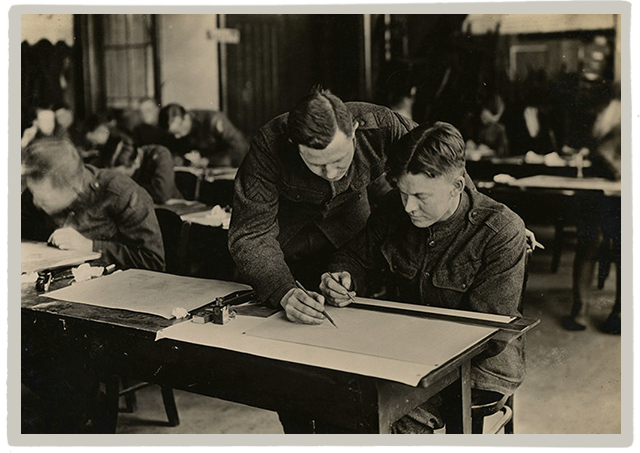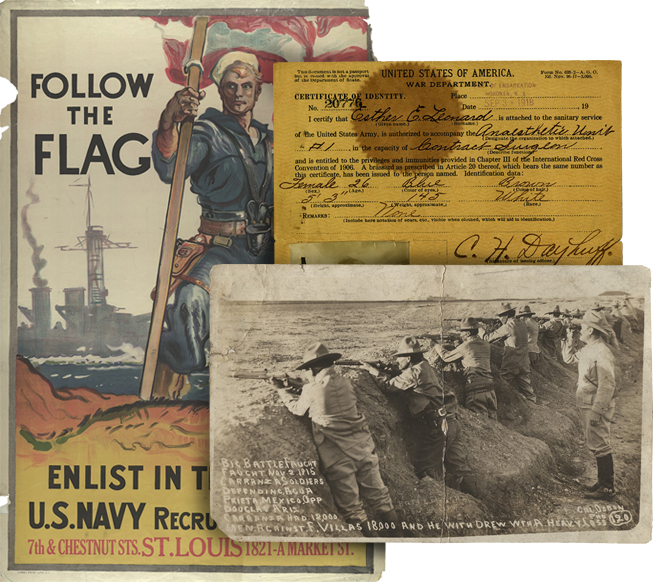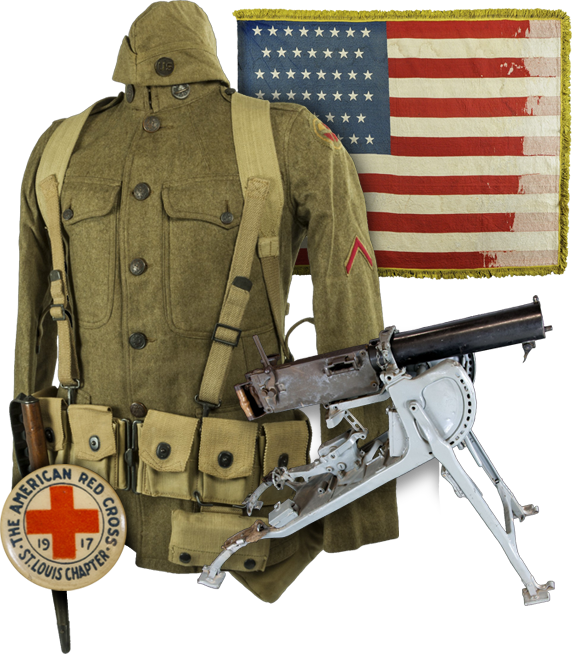William H. Taft letter to Enoch Crowder - September 4, 1917

Transcript
WILLIAM H. TAFT NEW HAVEN, CONN Pointe-a-Pic, Canada, September 4, 1917. My dear General Crowder: I received your last letter and read it with great interest. I am very, very sorry that such a wonderful work as you have done has not been appreciated by promotion to a Major-Generalcy in the line. It has been the foundation of an army. Without it we should have had confusion worse confounded. It is you who has done this work. I marvel that a man of Secretary of Baker's intellectual equipment can't hold the balance level between the line and the staff. He did have the good sense to take your plan, and, having that, why he should not recognize your claim to promotion I do not understand. The method of selecting Major-Generals and Brigadier-Generals, which you have described, is to me of very doubtful wisdom. No one at all familiar with an army or a navy can be blind to the fact that in an army on a peace establishment, without opportunities for real tests, men come to comparatively high rank without any capacity for discharging the onerous duties of such rank in war, and they must be eliminated. Of course it is not possible to eliminate them all until actual warfare, but there are many whose heads are wood to the middle, as all familiar with the army know, and they at least might be dropped. The easy, the demagogic, the lazy method of following seniority where you are looking for efficiency, is apt to give us such a congestion as Joffre found in the French army. The trouble is that we will be most expensive after the troops are landed on the other side. It is with military men as it is in all other departments of life, that the fraction of those who do things, who can effectively meet exigencies with original and courageous impulse, is comparatively small. This is going to show itself in the difference in the training of the units of the National Army at the various cantonments. It will

Transcript
[page 2] not show itself to the public, and it will be ignored in the War Department as much as possible, but it will manifest itself when the real test comes. The Administration has done so well in securing and enforcing the conscript act and in securing the merit system of the selection of officers, that I hesitate to criticise, but such an instance as yours, and such a method of promotion as that you have described, elicit these confidential expressions of opinion. I have noted in the Department a disposition to be rigid and bend backward as if to remedy wrongs of preference that were supposed to exist in a previous Administration. I am not attempting to defend previous Administrations, but I venture to think that the men who were selected and promoted out of the order of seniority will prove to be the best men that they have in the army; and that the theory that every man on the army list is as good as every other is, when it is considered in its naked form - and war strips such a plan of all demagogic arguments - will be seen to be as fatuous as even the method of selecting general officers in the Civil War. Scott himself, the result of the purest favoritism, and utterly incapable of filling the high position which he now titularly carries, seemed to be obsessed with the virtue of the Mancu act and convinced that men were equally qualified to do staff duty and service with troops; that the question of their effieiecncy should not determine their selection but only the question of their ease and comfort, so that the cake and ale should be equally distributed. This was the view of Josephus Daniels. It is the view of small men who adhere to rigid rules, because they haven't the ability and discretion to follow a more difficult but necessary rule, if things are to be well done. I have run on, however, and must stop. Let me thank you again for your kindness in letting me know about Charlie's situation. Sincerely yours, [signed] Wm Taft Brigadier - General E. N. Crowder, Provost Marshal General, Washington, D.C.
Details
| Title | William H. Taft letter to Enoch Crowder - September 4, 1917 |
| Creator | Taft, William H. |
| Source | Taft, William H. Letter to Enoch Crowder. 04 September 1917. Lockmiller, David A. (1906-2005), Papers, 1880-1964. C0405. The State Historical Society of Missouri, Columbia, Mo. |
| Description | <p>In this September 4, 1917, letter to Enoch Crowder, former president William H. Taft discussed his disappointment that Crowder had not been promoted, and criticised the War Department and Administration. Crowder, an Edinburg, Missouri, native, served as Judge Advocate General of the United States Army during World War I and drafted the Selective Service Act of 1917.</p> |
| Subject LCSH | Crowder, E. H. (Enoch Herbert), 1859-1932; Taft, William H. (William Howard), 1857-1930; Baker, Newton Diehl, 1871-1937; Draft; United States. War Department; United States. Army--Recruiting, enlistment, etc.-- World War, 1914-1918 |
| Subject Local | WWI; World War I; Selective Service Act of 1917; Selective Draft Act |
| Site Accession Number | C0405 |
| Contributing Institution | The State Historical Society of Missouri |
| Copy Request | Transmission or reproduction of items on these pages beyond that allowed by fair use requires the written permission of the State Historical Society of Missouri: 1020 Lowry Street, Columbia, Missouri, 65201-7298. (573) 882-7083. |
| Rights | The text and images contained in this collection are intended for research and educational use only. Duplication of any of these images for commercial use without express written consent is expressly prohibited. |
| Date Original | September 4, 1917 |
| Language | English |



